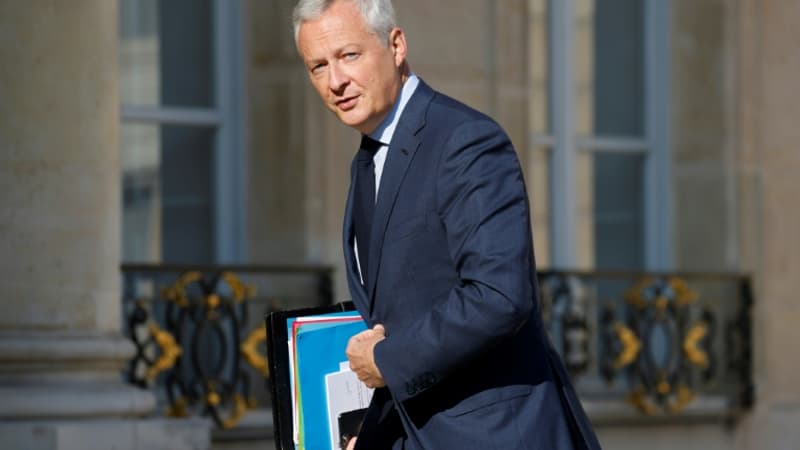No truce in the debate on “super profits”: a few hours after Germany promised to support European efforts to impose a mandatory contribution on energy companies, Paris hammered this Sunday that it was an “absolutely not” tax.
A few days before a meeting of the 27 Member States on energy issues, it is not about lending flank to the left, which has been proposing for months an exceptional taxation of the profits obtained by large groups such as TotalEnergies or CMA CGM.
This contribution is aimed at “companies that benefit from the price of gas while producing electricity from coal, nuclear or renewable energies”, we say in Paris.
The measure does not fall within the scope of “tax law”
The reaction came a few hours after the presentation by Germany of a plan of 65,000 million euros aimed at mitigating the effects of inflation.
The rise in prices in Germany reached 7.9% year-on-year in August, driven by energy prices that have soared since Russia, a key supplier to Berlin, cut gas flows to Germany.
In this context, the German government announced on Sunday morning that it would advocate the introduction, at European level, of a compulsory contribution to be paid by companies in the energy sector.
Spain had already announced in mid-July a tax on the extraordinary profits of large energy and financial companies.
Previously, Italy and the UK introduced a tax on the profits of oil and gas giants.
“Artificial Augments”
Invited at the end of the afternoon at LCI, the European Commissioner for the Internal Market, Thierry Breton, was in favor of “the use of exceptional resources, and in particular pensions” to “limit the impact of inflation both on individuals and in the companies.”
But he insisted on the importance of limiting the scope of this contribution to “artificial increases that certain energy players have been able to achieve.”
If the European discussions are unsuccessful, Berlin says it is ready to do so only by taking action at the national level.
In France, Economy Minister Bruno Le Maire is strongly opposed to the idea of taxing the super-profits of multinationals, while Prime Minister Élisabeth Borne does not “shut the door” as a last resort.
Before Bercy spoke out, MEP Manon Aubry (La France insoumise) gloated on Twitter that it was “Germany’s turn to tax super-profits.”
Bercy must present his budget project for 2023 in the coming days, in which he will detail the government’s strategy to fight inflation, in particular energy inflation.
While the tariff shield on gas prices is supposed to expire on December 31, 2022, Public Accounts Minister Gabriel Attal assured France Inter on Saturday that a “shield system” would be maintained in 2023.
However, the percentage increase in energy prices remains to be defined. Gabriel Attal said in an interview with Le Parisien on Saturday that an increase of 10 to 20% was a “possibility”.
Source: BFM TV


